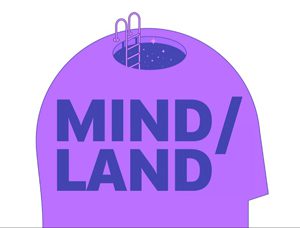Facing a life-limiting illness can trigger a wide range of reactions, emotions and questions for the diagnosed person and those who support them. It is often a time of reflecting on your life and the meaning of life at the end. Common questions we hear during this time are: ‘Why is this happening to me?’; ‘What is the meaning of my life?’; ‘Is this the end of my life?’; ‘Why do we exist?’
It is common for people navigating stressful life events to draw on spirituality as a source of strength and to help answer these and other questions. Whilst many think of religion when they think of spirituality, it is much broader than that. Spirituality is inclusive of both religious and non-religious forms.
What is spirituality?
Spirituality will mean different things for different people. For some it means the way people seek and express meaning and purpose. It can also mean the way people experience feeling connected to the moment, to self, to others and to art and nature. It can also mean the way people feel connected to their view of the significant and the sacred.
This brief video from Spiritual Health Australia, explores the question ‘what does spirituality mean to you?’ whilst this video from Meaningful Ageing Australia, explores how spirituality in later life is more than religion. Both videos describe the role of spirituality and how it is expressed depending on the lens through which people experience it.
As we consider the role of spirituality at end of life, it might help to ask yourself: What does spirituality mean to me?
What role does spirituality play in your life?
As you navigate a life-limiting illness, it is important to consider your spiritual needs and how your spirituality can be a source of strength to draw on. To help you consider the role spirituality can play in your life it can help to contemplate the following questions:
Do you consider yourself spiritual or religious?
How important is religion and/or spirituality in your life?
Do you have spiritual beliefs and practices that help you to cope with difficult times?
What gives you strength in difficult times?
What gives your life meaning?
Are you part of a spiritual community? Is this community of support to you? How do they support you?
How would you like your healthcare team to consider your spiritual needs, beliefs, and practices in your care?
When you reflect on your life, what feels most important to you?
Have you thought about what happens after death?
An article from the Canadian Virtual Hospice explores these questions, as well as common spiritual struggles that people with a life-limiting illness experience like feelings of isolation or abandonment, anger, guilt, sadness, suffering, hope and trust.
In another article from the Canadian Virtual Hospice they delve deeper into the role of finding purpose and meaning during a health crisis. They explore how to find meaning:
- In the here and now,
- In relationships,
- In artistic activities
- In nature
- In religion and spirituality
- Through your attitude
Spiritual practices, tools, and rituals
Spiritual practices and rituals can help those facing a life-limiting illness and those supporting them, to navigate difficult times. An article from the Canadian Virtual Hospice explores how creating rituals can help navigate challenging times, leave a legacy or bring family and friends together for celebrations and ceremonies.
There are also a range of tools that can support and enhance spiritual practice. Below are some commonly used tools.
Meditation
 Meditation is a practice that helps people to quiet the mind and to connect with inner awareness, promoting peace and self-understanding. Karuna Hospice Services, a specialist community-based palliative care charity, offer online meditations. They offer 12 different meditations to calm your mind, foster positive states of mind or weaken habitual negative states of mind.
Meditation is a practice that helps people to quiet the mind and to connect with inner awareness, promoting peace and self-understanding. Karuna Hospice Services, a specialist community-based palliative care charity, offer online meditations. They offer 12 different meditations to calm your mind, foster positive states of mind or weaken habitual negative states of mind.
 For many, spirituality comes from a connection to nature. Queensland Health has produced a video and podcast series, Mind/Land to help people discover the serene connection between mind and nature. Mind/Land offers guided meditations and soundscapes from iconic locations across Southeast Qld with meditations ranging from one minute to one hour.
For many, spirituality comes from a connection to nature. Queensland Health has produced a video and podcast series, Mind/Land to help people discover the serene connection between mind and nature. Mind/Land offers guided meditations and soundscapes from iconic locations across Southeast Qld with meditations ranging from one minute to one hour.
Breathwork practices
Breathwork practices use breathing techniques to promote relaxation, reduce stress and enhance spiritual connection. On their website Karuna offer three different settling practices, including body awareness, counting the breath and finger breathing.
The Grief Channel offers two brief guidance breathwork techniques facilitated by Julia Samuel, a psychotherapist specialising in grief.
- TV mechanism – a 2-minute exercise if you are having intrusive flashbacks of people or places.
- The squeeze – a 3-minute exercise to help shift you from a place of stress and hyperarousal to a place of calm and stress release.
Journalling
The practice of journalling, or expressive writing, can be a powerful tool in connecting with your spirituality. Journalling, or writing about your thoughts, beliefs, and feelings, can help you to process what is on your mind. It is a powerful tool for regulating our emotions, encouraging self-reflection and can create distance from intrusive thoughts or feelings.
Here are some starting points for journalling:
- write about whatever comes to your mind
- write about how you are feeling
- write about those things that pick you up and get you down
- write about those things you are worried or concerned about
- write about what you are grateful for.
A blank page is an invitation to fill it with whatever you need to explore in your internal world. You can ask yourself questions, for example, What do I need from this moment? What matters most to me? What do I want?
Spiritual care services
Some people find talking with a spiritual companion or spiritual care provider can be helpful to explore their spiritual needs. A spiritual companion or spiritual care provider is someone who listens to you and can help you face the challenges of your illness. Your spiritual companion can be a family member or friend, someone on your healthcare team, a leader in your spiritual tradition, a member of your faith community, or a palliative care or spiritual support services volunteer. Essentially anyone who is willing to help you explore your spiritual questions and concerns can be a spiritual companion.
In this 6-minute video, shared by Spiritual Health Association, watch the story of Alex Robins and Leila McCann who were companioned by spiritual care practitioner Russell Armstrong as part of Alex’s palliative care.
Metro North Health Spiritual Support Services
Metro North Health provides free spiritual support and multi-faith services, available to everyone including those with no identified faith, spiritual or religious practices. Spiritual support services are provided by volunteers and can provide emotional support, spiritual or religious guidance, a listening ear, reflection and compassion, support to seek meaning and purpose and support if you are seeking forgiveness, reconciliation, and closure. They also offer grief and bereavement support.
In our hospital and health facilities across Metro North we also offer spaces for spiritual practice, including private prayer and reflection. For more information visit Metro North Health Spiritual Support Services

